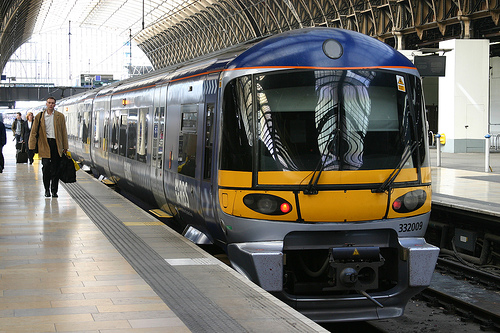British Rail
In 1997 the Labor government was elected in after the majority of the privatization process had been completed. It did not completely reverse the railway privatization of the previous administration. Initially it left the new structure largely in place, however its main innovation in the early years was the development of the Strategic Rail Authority (SRA), which was initially in shadow form until the Transport Act 2000 received Royal Assent.

In the wake of the Hatfield rail crash in 2000, Railtrack had a financial crisis and the industry found itself in deep trouble. Labor refused to continue to bail out Railtrack and the company was put into Railway Administration in 2001. In 2002, Network Rail, a new company, emerged to replace Railtrack. Network Rail is a nominally private company. It’s borrowing, however, is backed by the government, therefore its status remains confused.
The Strategic Rail Authority lasted only five years. Its business was completed after the passing of the Railways Act 2005 and its functions were transferred to the Office for Rail Regulation and the Department for Transport Rail Group. Further changes have followed, which has seen the government take back a greater degree of control, but the early demise of the SRA suggest that perhaps the right formula for the continued health of the rail industry has not yet been agreed.
Another important development occurred in May 2002 following the aftermath of the Potters Bar accident when a commuter train derailed due to poorly maintained points. This resulted in Network Rail taking all track maintenance back in house, and the industry went on to enjoy the longest period in modern times without a fatal accident due to industry error. This came to an end in February 2007 when a Virgin Pendoline derailed near Grayrigg in Cumbria which killed one person. The cause of the accident was determined to be identical to that at Potters Bar which occurred nearly five years earlier and which once again began calling into question Network Rail’s maintenance procedures.
Travel in Britain from November 1, 2009 through February 28, 2010 and save with the new BritRail’s Consecutive Pass Low Season Promotional Pass. The BritRail Low Peak passes now offer a discount off the cost of a regular pass of 20%.
With the discount the pass includes: unlimited travel on the national rail networks of Great Britain, including transportation from Gatwick, Heathrow and Stansted Airports to London, and Thames link trains; Availablity for 3, 4, 8, 15, 22 days or 1 month of consecutive travel; Availability for 3, 4, 8, or 15 days of consecutive or nonconsecutive travel within a 2 month period. First class or second-class is available. First class prices take into account regions where only standard rail is available.
BRITISH RAIL has just produced a gleaming new plan for the next decade. It promises that its trains will be punctual, cleaner, and faster. However, many of the improvements have already been achieved from making a nationalized industry more businesslike. Britain currently enjoys one of the most efficient railways in Europe. Its trains travel 49% more kilometers per employee than the West European average, with one sixth of the public subsidy. Even the quality of service is not that bad.

